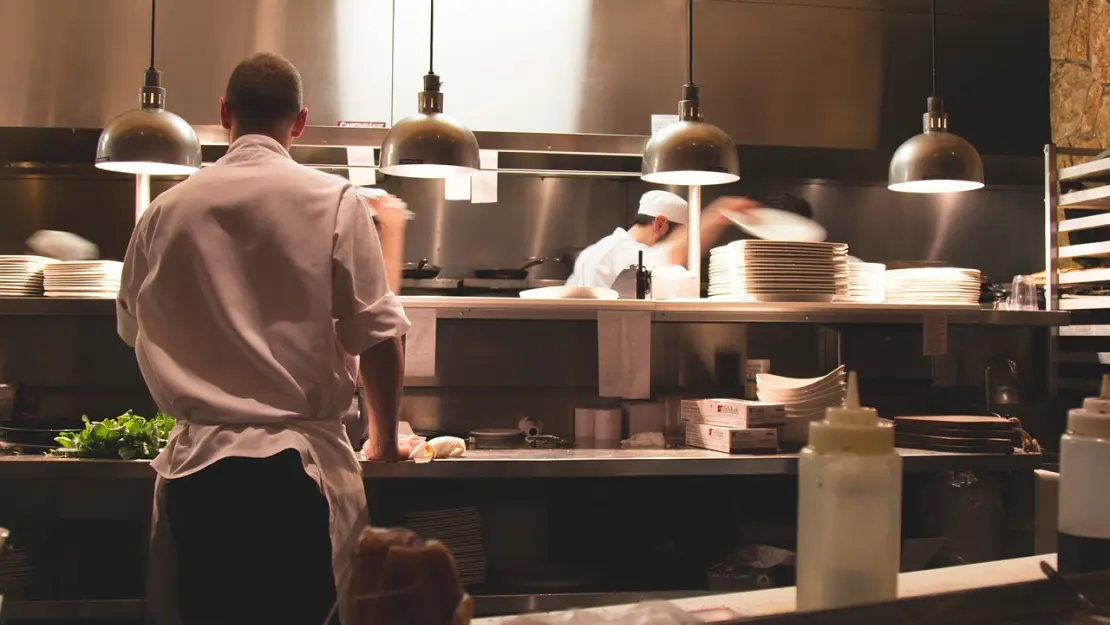
The restaurant sector is not a friendly place. As you probably know yourself, most business owners in this industry eventually walk away due to fierce competition. If this is the reason you must sell your restaurant, we’re sorry to hear about that. Now, let’s get the most out of this unfortunate situation.
You will need a lot of help and support in the following months, so we’ve prepared an in-depth rundown of everything you need to know before you enter the market as a restaurant seller.
These are our 10 expert tips for selling a restaurant:
1. Understand Your Restaurant’s Worth

There’s no doubt that your restaurant is your prized possession. Unfortunately, the restaurant market doesn’t have any regard for sentimental value. As if making a decision to sell wasn’t already hard enough, you will also need to take a close look at what you – and use your critical eye.
It’s not a bad idea to prepare yourself for some difficult truths. Perhaps your restaurant can no longer live up to its former glory, and that’s fine. All assets, including businesses, suffer from value depreciation. Your restaurant is no exception. Take a deep breath and try to tell its actual value.
Below, we’ll talk more about everything that goes into an accurate business valuation. While you should be able to give a rough estimate based on your current cash flow, the state of your physical assets, and your brand recognition, you’ll also have to consult your financial and legal records.
2. Get Your Financial Records in Order
Whenever you’re selling something, it helps to perceive the process from the buyer’s perspective. If you were a prospective buyer, what concerns would you have? In business, that is usually finances. As a new restaurant owner, you would want to know how much your business can make.
So the first thing you need to do is get your financial documents in order. Everything needs to be clean, transparent, and comfirmable. Start with your bank statements and balance sheets. An accurate picture of a business’s financial health is best seen from income and loss statements.
If you’ve been keeping a computerized spreadsheet, that’s fine as long as it is readable. As a buyer, you would want proof of profitability, which implies a steady cash flow.
Show that to the buyer in any form you can, but make sure it checks out compared to the bank statements.
3. Make Sure Your Operations Are Legal

Hand in hand with business financials are the legalities involved in running a restaurant. The course and end result of the selling process depend entirely on this. If there is as much as one paper missing from the file, the entire deal might fall through. So, let’s see what you need to prepare:
- Business records with analysis of earnings;
- Tax documents with applicable tax returns;
- The equipment list with appropriate permits;
- Your current lease agreement, if applicable;
- Recent copies of health inspection records;
- Liquor license and other applicable licenses.
If you’re due for health inspections and other license renewals, research your renewal options and schedule them in time because buyers will want you to show them valid papers.
Also, don’t forget that you won’t be able to complete the sale before the alcohol license transfer notice expires.
4. Invest to Increase the Value and Price
Now that you have all your ducks in a row, it’s time to prepare your restaurant business for the market. Unless you’re in a hurry and you wouldn’t mind lowering the price to seal the deal faster, you’ll have some time before the first buyers. Take that time as an opportunity to accumulate interest.
This part of the sales process is usually hard for the current owner as it implies investing in a restaurant that’s essentially no longer yours. Why invest if you’re going to sell it anyway? Because when it comes to increasing the value of your restaurant and the sales price, a little goes a long way.
Depending on your current capital, you can either polish up the place to make it decent-looking or invest a little more and give it a second life.
If you already have a positive cash flow, it might be a good idea to turn that around and spruce up the interior, invest in new equipment, and revisit the menu.
5. Execute a Pre-Sale Marketing Campaign

Next, you’re going to need an excellent marketing strategy and a strong social media presence. If that seems like a waste of time and money, we assure you it’s not. Attracting new audiences on top of your loyal customer base will generate buyers’ interest and significantly increase your price.
Here are some marketing ideas that will boost your image and revenue:
- Fix up your restaurant website with high-quality photos.
- Optimize the restaurant’s Google My Business Account.
- Create content for Facebook, Instagram, TikTok, and X.
- If there’s the budget for it, invest in a local SEO campaign.
- Ask your customers to recommend you on TripAdvisor.
- Partner up with food delivery services like SkipTheDishes.
6. Wait for the Best Time to Enter the Market
When is the best time to sell a restaurant? Well, that depends on the market conditions. From the industry seasonality standpoint, the best time to sell is after New Year’s. According to multiple annual reports, the market value of a typical restaurant business is the highest between January and April.
You should also take into account that the average restaurant sale lasts a long time. Usually, it takes up to two years for a seller to find a qualified buyer. Selling a restaurant in a few weeks or months is very rare, but it’s not impossible – especially if you increase its market value and put it on the map.
All things considered, you should start planning your exit strategy three years before the actual sale.
That’s how long it will take to get to an attractive price, get your finances in order, and solve all the legal matters. Again, all this depends on your local market, so you’ll need to do your research.
7. Have a Detailed Plan for the Sales Process

A typical business operates on a project-to-project basis. Breaking down projects into smaller milestones makes it easier to track progress and improve when necessary. A restaurant doesn’t work like this, but you can take something out of agile business ideologies in order to plan your long-term sale.
For starters, all you need is a simple to-do list. Each tip from this article can be one list item, with smaller tasks listed underneath. For example, boosting the value of your restaurant will depend on your marketing efforts, which will imply building a social media presence and dealing with bad reviews.
8. Consult a Professional Restaurant Broker
Even with diligent and careful planning, preparing a restaurant for sale can be a long and overwhelming process. To make sure they are not wasting time or making mistakes, many restaurant sellers hire professional brokers to help them out. A broker’s job is to navigate the sale process.
There are many great benefits to hiring a restaurant broker. Most of these professionals have been in the business for a long time, so they know the steps involved in the process very well. They also have a great understanding of market fluctuations and can give you expert advice backed by data.
A broker can help you understand how selling a restaurant works, what to expect, and how to speed up the process. For example, there might be some legal barriers that you’re not aware of. But best of all, brokers have a network of suitable buyers that are waiting for a perfect restaurant for sale.
9. Register as a Seller on Find Businesses 4 Sale

As an alternative to a professional broker, or rather in combination with one, a listing service can help your restaurant enter the market and reach the right buyers. Find Businesses 4 Sale is one of the most visited marketplaces for businesses and commercial properties where sellers can register for free.
Posting a listing on Find Businesses 4 Sale is as easy as searching for ideal sellers. In addition to that, our platform maximizes your listings’ exposure to the right type of buyers with targeted promotions and ads. We can additionally boost your visibility with email marketing and social media campaigns.
10. Take Some Time to Prepare for Negotiations
Are you ready to negotiate? If your answer is yes, congratulations! That means you have a potential buyer. There’s a long pre-sales process behind you, and you can finally bring your proposal to the table. Now what? Unfortunately, having a potential buyer in a room doesn’t mean that the deal is sealed.
Again, a good broker can help you prepare for the actual negotiations. Presuming you’ve prepared all your financial statements, legal papers, and business information for this moment, the only thing left is to put your emotions aside. It’s hard, but it’s the only way to monetize your restaurant’s true worth.
Conclusion
Selling a restaurant is not something anyone would enjoy. Hopefully, now you have a better picture of the many intricacies involved in the process. If you need help spreading the word, Find Businesses 4 Sales is at your disposal. For anything else, try to get in touch with an experienced restaurant broker.
FAQ
How long does it take to sell a restaurant in Canada?
Typically, it takes between six weeks and two years to sell a restaurant in Canada. This widely depends on the current state of the business and market demand.
Having a positive cash flow and a loyal customer base helps attract buyers faster, while having clear financial records helps speed up the legal aspect of the sales process.
How can I improve the asking price when selling a restaurant in Canada?
You can significantly improve the sales price of your restaurant business if you increase its actual market value. That implies investing in the general appeal of your restaurant, as well as improving your offer and services.
You should also consider investing in branding and marketing to attract new audiences and grow your revenue.
When is the best time to sell a restaurant in Canada?
Statistically, the best time to sell a restaurant in Canada is in months between January and April. The country’s economy and restaurant market conditions are the most favourable during this time, resulting in higher restaurant prices.
If you can devise an exit strategy before New Year’s, that would significantly improve your chances of selling your restaurant for more money.







